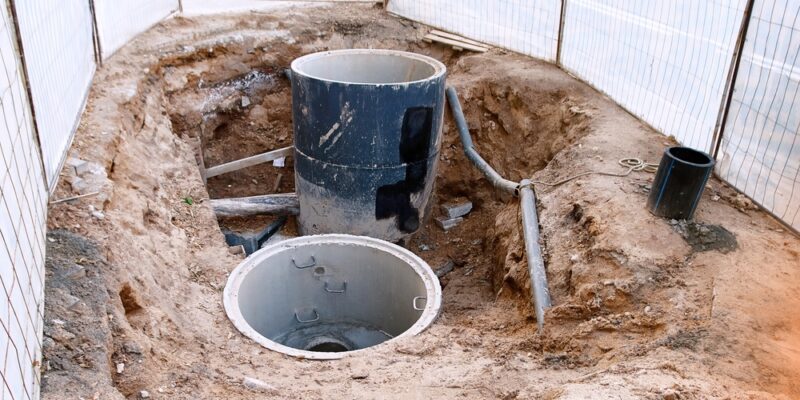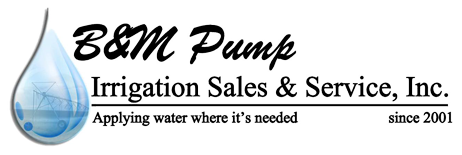
Planning a New Water Well in West Texas? Here’s What Homeowners and Landowners Need to Know
If you own property in West Texas and are considering water well drilling, you’re not alone. Whether you’re in El Paso, Lubbock, Midland, Amarillo, or San Angelo, having your own water source can be a smart move for both personal use and agricultural or ranching needs. But installing a new water well isn’t as simple as picking a spot and drilling—it’s a detailed process that involves legal, environmental, and technical considerations. Understanding the regional landscape, the legalities involved, and the available well services can save you time, money, and long-term headaches.
The Importance of Water Wells in West Texas
West Texas is known for its vast, arid plains and rugged beauty, but water scarcity is an ever-present concern. Municipal water supplies can be expensive or even inaccessible in remote areas. For this reason, water well drilling is a common solution for homeowners and landowners seeking independence from city systems and a sustainable water source.
Water wells are especially critical for agricultural operations and livestock ranching in counties like Midland and San Angelo, where water-intensive activities are a way of life. In suburban and rural developments outside El Paso or Lubbock, a personal well provides homeowners with reliable access to water for domestic use, landscaping, and gardening—uses that would otherwise be costly or restricted during droughts.
Because water is such a valuable resource in the region, drilling a well can also increase property value and appeal, especially for buyers seeking off-grid or self-sufficient living options. However, West Texas terrain and aquifer access vary significantly from county to county, so it’s crucial to approach the project with a solid plan and realistic expectations.
Research and Regulations Before You Drill
Before a single drill touches the ground, you’ll need to become familiar with Texas water rights and local regulations. In Texas, groundwater is governed by the “rule of capture,” which essentially allows landowners to pump as much water as they can from beneath their property. However, that doesn’t mean it’s a free-for-all. Local Groundwater Conservation Districts (GCDs) often impose permitting requirements, well spacing rules, and usage limits to protect the aquifer from overuse.
Depending on your location—whether you’re closer to Amarillo’s Ogallala Aquifer or San Angelo’s Edwards-Trinity Plateau—you may need to apply for a permit before drilling begins. These permits may require you to disclose intended water use (residential, agricultural, commercial, etc.), depth and diameter of the well, and estimated withdrawal volume. Working with a reputable water well drilling contractor familiar with West Texas regulations is essential to navigating these legal steps.
Additionally, environmental impact assessments may be required in sensitive areas. For example, if you’re drilling near a river basin or wetland zone, you could face more scrutiny. Ignoring these legal obligations can lead to fines, mandatory decommissioning of wells, and future problems with neighbors or water boards.
Choosing a Qualified Well Drilling Company
When selecting a contractor, look for a water well drilling company that specializes in West Texas terrains and aquifer systems. From rocky caliche layers near Lubbock to the deeper sands of El Paso, geological conditions will influence both the cost and success of your well. Experienced drillers will perform a site evaluation to determine the best location, depth, and method for drilling based on the water table and underlying rock formations.
It’s also wise to inquire about the type of equipment used, as newer drilling rigs can increase precision and minimize disruption to your land. Reliable well services include not only drilling but also casing, grouting, pump installation, and wellhead sealing—all of which are necessary to maintain water purity and structural integrity.
Reputable companies should also offer water testing services post-installation to ensure your water is free from contaminants like bacteria, nitrates, or arsenic. Well water quality varies significantly even within a few miles, so never assume that your well will produce potable water just because your neighbor’s does.
Service warranties and maintenance packages are another consideration. Since wells can require upkeep—especially in regions like Midland or Amarillo that experience seasonal droughts—a long-term relationship with a well service provider can be invaluable. Some companies in West Texas even offer remote monitoring for pump performance and water levels.
Planning for the Long Term: Well Depth, Pump Capacity, and Water Usage
Drilling a well is not just a one-time project; it’s a long-term investment. Determining the right depth is crucial. Shallow wells might be cheaper to install, but they are more susceptible to drought conditions and contamination. Deeper wells, which are common in regions like San Angelo and Lubbock, access more stable water sources but come with higher upfront costs and energy requirements for pumping.
The type of pump you install depends on both your water needs and the depth of your well. For example, a standard jet pump may suffice for shallow wells under 25 feet, but most West Texas wells require submersible pumps designed for deeper installations. These pumps are more durable and efficient, especially when supplying water for irrigation systems, livestock, or multi-family homes.
You’ll also need to consider water storage solutions like pressure tanks, which help regulate water availability during peak usage hours. In areas with electricity concerns or for off-grid properties, solar-powered pumps are gaining popularity, especially in sunny cities like El Paso and Midland.
It’s wise to calculate your long-term water needs before drilling. Factors include family size, number of bathrooms, irrigation demands, livestock needs, and seasonal changes. Overestimating your needs can lead to unnecessary expenses, while underestimating could leave you with inadequate supply during critical periods.
Maintaining and Protecting Your Well for Years to Come
Once your water well is drilled and operational, regular maintenance is key to ensuring longevity and safety. Most experts recommend annual inspections to check for pump wear, pressure tank issues, and water quality changes. Sediment buildup, bacterial contamination, or a drop in water yield are common issues that can be caught early with routine service.
Protecting your wellhead is also critical. Make sure it’s sealed properly and located away from sources of contamination like septic tanks, fuel storage, or animal pens. In flood-prone areas of West Texas, such as low-lying parts near San Angelo, elevating the wellhead above flood level is essential to preventing contamination.
In drought years, your well may yield less water or run dry altogether. Having a backup plan, like a water storage tank or access to municipal supply for emergencies, can be a lifesaver. It’s also possible to deepen an existing well or drill a secondary well if needed, though this requires permits and geological reassessment.
If your property changes hands in the future, having well records—such as drilling logs, pump specs, and water quality reports—can be a selling point. Buyers in rural areas increasingly seek self-sufficiency and will appreciate a well-maintained, documented water system.
Conclusion
Installing a water well in West Texas is a significant but worthwhile endeavor for homeowners and landowners. From the rolling ranchlands of Amarillo to the desert edges of El Paso, a private well provides independence, sustainability, and long-term value. By partnering with experienced professionals, adhering to local regulations, and planning for future water needs, you can ensure that your well delivers clean, reliable water for decades to come.
Need an Irrigation System Company in Seminole, TX?
Welcome to B&M Pump Irrigation Sales & Service, Inc.! We are your professional irrigation specialist! Our typical services include complete pump service, water well service, system design, and pivot systems. We deliver personal service and reliability to our customers in Texas, Oklahoma, New Mexico, and Arizona. No matter where you are in the southwest, B&M Pump Irrigation Sales & Service, Inc., is a name you can trust. We strive to educate owners and operators on making pumps and motors last longer and work more efficiently. We sell good quality products at a fair price and stand behind the products we sell. Give us a call today to speak with one of our service experts today!
Categorised in: Water Wells
